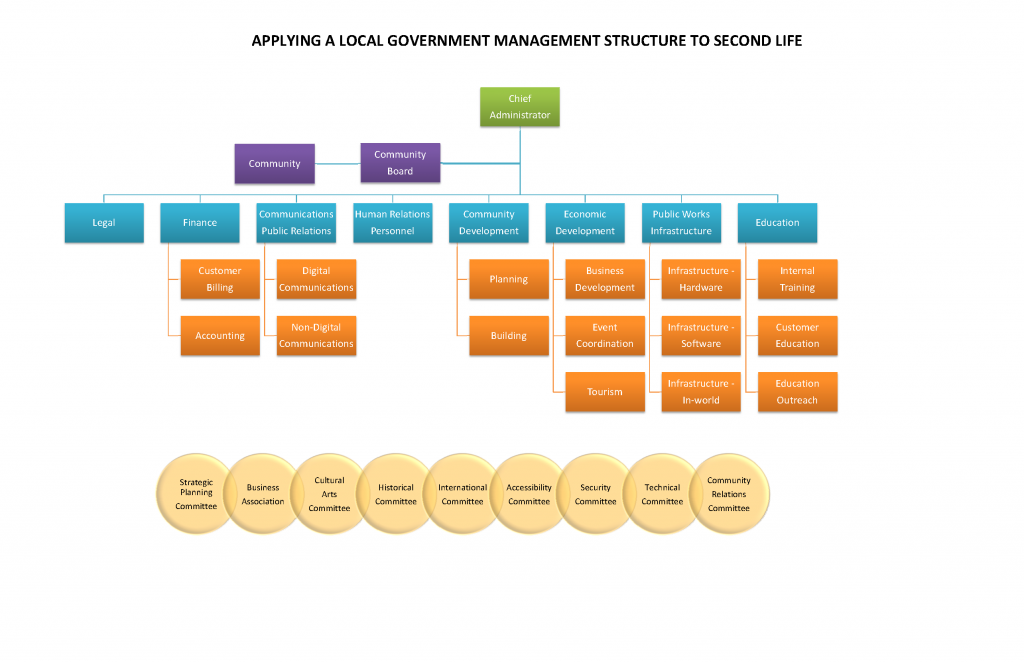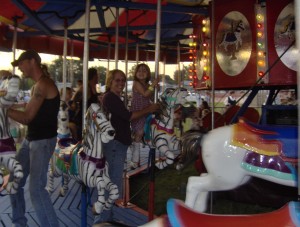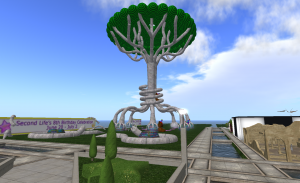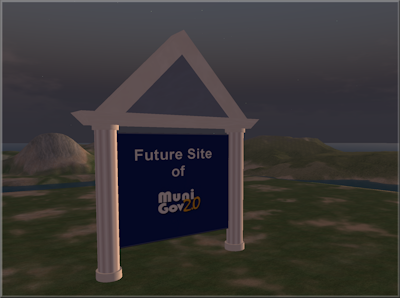Today's post is a break from my usual "A Day in the Life. . ." series. This break is due to two reasons: taking time off for the holiday and working on a project I am submitting to the Federal Virtual World Challenge.
The Growing Digital Community
Lately I've been thinking a lot about communities. I guess this isn't too unusual because I tend to do this anyway as part of my job working for local government. But lately it's been different. And as crazy as it sounds, I think playing Farmville started it all. Yes, aside from inspiring me to dream up an agriculturally themed set of Transformers, playing Farmville has also driven home the point that I have truly become part of a community other than the one in which I physically live. (Which, by the way, why is Farmville selling stuffed animals when they could have been selling a whole line of these cool Transformers!?)
Sure some of the people I am neighbors with on Farmville are people I know offline – one is even a best friend from high school. But there are also many who I have only known through our mutual use of virtual worlds like Second Life. I don't know all of them as well as I knew my best friend – the majority of people I know from Second Life are more like acquaintances and most are people I have never physically met. But other than the difference of meeting digitally vs. physically, there seems to be little difference from the types of relationships I have offline. I am normally best friends with only a few and acquaintances with many. Some I may only know by name because I hear about their work or see their name in the paper. And this is also how I know of many in Second Life.
The Management of Second Life
So it was with these thoughts I read several blog posts about the resignation of Kimberly Salzer (Kim Linden), former VP of Marketing at Linden Lab – the creators and hosts of Second Life. Two posts in particular ( Communications and the Lab. Again, by Inara Pey, and A Rosedale by Any Other Name… by Aeonix Aeon.) explored Salzer's work, her influence on Second Life, and why it seems that the people running the ship seem to have forgotten they have passengers. I agree with much of what they have observed and with most of their suggestions for improvement. Yes, Linden Lab needs to come to the realization they have created an actual place that people depend on for meeting people, learning, having fun, hanging out, and for some, earning an income. Second Life is not a game any more than Chicago is a game because the Bears, Sox, Cubs, Bulls, and Blackhawks play games there.
In a way, the company reminds me of a parent who had such great hopes and dreams for their child to grow up and fit their mold of the perfect child. But the child grew up and become their own person with their own hopes and dreams that were much different than what the parent had planned. And now the parent is in denial or at least agitated. They don't seem to know or recognize this person who came home for Thanksgiving. At times, they don't know how to treat them. And the big question is will they accept the fact that the future of their child is not entirely under their control or will they, like some parents who fall into this trap, spend their time trying to convince their grown-up child that the parent will always know what is best for the child?
As caretakers of our communities, those of us who are public servants can also fall into this trap. We can think that our idea of how the community should look, operate, or function is best. But the citizens might think very differently. And this group vision can change over time. This is why we have a structure in place to manage the operation of our communities and why we regularly update strategic plans and create new comprehensive plans.
For a few years now, I've often thought the system we have in place in local government would work well for Second Life. There is such a similarity between the community that is Second Life and the community in which we physically spend time. So I have been waiting for Linden Lab to see this same comparison. And yet they have not. And I wondered why.
I started thinking after reading the posts today that most people probably aren't intimately aware of what exactly goes on in government. In fact, based on recent articles in newspapers, people probably get the impression that nothing really gets done by government – there's only a bunch of lazy, uneducated, not-good-enough-to-get-a-job-in-private-industry people sitting around doing nothing at all waiting to retire to collect a fat pension. Yet, nothing could be further from the truth. There's a whole system in place for managing communities that's been developed over thousands of years. Is it perfect? No, because communities are people, and people are not easily managed, but the system works most of the time. We all are supported by our local governments, and most of us provide this support so well that people have forgotten we are even here working for them 24/7. So maybe the Lab doesn't seriously consider this as a solution because they just aren't familiar with it.
Applying a Local Government Management Structure to Second Life
So, I'm adding my voice to the others out there offering suggestions to the Lab. And I've laid out below a beginning framework of operation based on how we manage physical communities. And because the digital space has some challenges and issues unlike many we normally deal with, the framework would have to be refined over time. In the end, I figure this structure could fit within the structure of a private business like Linden Lab, and it can't do any worse than the current setup.

Here is a brief description of what I was thinking about the basic function for each.
Chief Adminstrator – this is normally the city manager who provides the overall structure and leadership for the team. This person also makes sure the team is working towards meeting goals set by the strategic plan and doing so within budgetary limits. For Second Life this would be the CEO (Rodvik).
Community – this is the most important part of the structure because without a community there is no reason for this organization. For Second Life, this would be all the users/customers.
Community Board – this is normally the elected body chosen by the community to represent their interests in management of the community. For Second Life, I would suggest that the community be divided into regions based on what would make sense to the users. Some suggestions are: mainland, private land, adult land, etc. And then allowing premium members from each region to vote for their representatives to serve on this board. Based on offline experience and current in-world active population, I would also suggest limiting this elected board to 20 members with 2 from each region and a term of 2 years for each. Of course, because Second Life is a private company, not an actual government, this board can only serve in an advisory capacity.
DEPARTMENTS:
Legal – the function of this office is straightforward and probably already in place at Linden Lab. However, perhaps this department could be expanded to offer services to the Premium members of Second Life. There's such a large group of users who are developing new content and products, perhaps a small office to offer advice on the legal aspect of trademarks, patents, and business would be helpful.
Finance – the function of this office is also obvious and also probably already in place at Linden Lab. Based on feedback from users, I would only suggest beefing up the customer service aspect. Perhaps adding a 311 type center that would not only deal with billing but all "citizen" service communication would be helpful. I realize Linden Lab must already have something like this, but patterning it off the 311 system might help improve its operation.
Communication/Public Relations – again, the Lab must already have something like this – perhaps it is their marketing department. It just seems that they could do more not only in-world, but in the physical world.
Human Relations – another typical office that is most likely already in place at Linden Lab for personnel and other employee issues.
Community Development – in local government this office helps carry out the community plans, helps develop policies, oversees building and development within the community, enforces zoning and other policies. These functions could be applied to the world of Second Life. We've already seen that zoning was eventually needed and applied. We also already have "building" policies and requirements that need to be enforced. I think most people who have used Second Life for quite some time would easily see how the work of this office could be implemented in-world. And they'd probably have some additional suggestions for this office.
Economic Development – like in our physical world, the economic growth and success of the community is vital. In local government, this office acts a liason to business, analyzes business and tourism within the city, supports local businesses and those looking at setting up a business. And the office promotes tourism and marketing of the community. Staff can also oversee events and act as a liason and offer support for groups hosting events in the community. Again, I think most residents of Second Life could easily see how the work of htis office could be implemented in Second Life.
Public Works – of all the departments in local government, this is the one that would be the least similar in its application to the virtual environment. In the physical world, public works provides and maintains physical infrastructure like roads, water, sewers, and electricity. But there's no need of these things in a virtual environment. Instead there is hardware and software supporting the operation, access, and management of the world. And there is the in-world infrastructure already created and maintained by the existing Linden Lab Public Works department.
Education – this office is not always a function of local government. However, because of the needs of the users in Second Life, it does seem that it would be a beneficial office to maintain. It would support training for Lab employees as well as education of users. This is probably already a function in place at Linden Lab. An office for outreach to educational efforts on the grid and educational institutions operating in the physical world would also be useful.
COMMITTEES
Citizen committees provide an important function for local government. They can help focus community interest and efforts and help advise management. Committees would be helpful in Second Life, and there is already somewhat of a structure in place in Second Life to work with. I've listed a few committee suggestions, but I'm sure the users of Second Life would have other suggestions. It would also be helpful for the Lab to offer a small budget for each committee to help them carry out their goals.
PUBLIC HEARING PROCESS
Another important process used by local government is to hold public hearings to help develop strategic plans, comprehensive plans, zoning changes, fee changes, etc. Public hearing feedback is normally advisory in nature, but can help prevent development of bad policy and unsuccessful projects.
Of course, I realize Linden Lab will probably never implement this, but I figured it was worth a shot at putting it out there for discussion.






